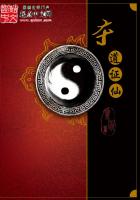The Edictal Law would therefore enforce the dispositions of aTestator, when, instead of being symbolised through the forms ofmancipation, they were simply evidenced by the seals of sevenwitnesses. But it may be laid down as a general proposition, thatthe principal qualities of Roman property were incommunicableexcept through processes which were supposed to be coeval withthe origin of the Civil Law. The Praetor therefore could notconfer an Inheritance on anybody. He could not place the Heir orCo-heirs in that very relation in which the Testator had himselfstood to his own rights and obligations. All he could do was toconfer on the person designated as Heir the practical enjoymentof the property bequeathed, and to give the force of legalacquittances to his payments of the Testator's debts. When heexerted his powers to these ends, the Praetor was technicallysaid to communicate the Bonorum Possessio. The Heir speciallyinducted under these circumstances, or Bonorum Possessor hadevery proprietary privilege of the Heir by the Civil Law. He tookthe profits and he could alienate, but then, for all his remediesfor redress against wrong, he must go, as we should phrase it,not to the Common Law, but to the Equity side of the PraetorianCourt. No great chance of error would be incurred by describinghim as having an equitable estate in the inheritance; but then,to secure ourselves against being deluded by the analogy, we mustalways recollect that in one year the Bonorum Possessio wasoperated upon a principle of Roman Law known as Usucapion, andthe Possessor became Quiritarian owner of all the propertycomprised in the inheritance.
We know too little of the older law of Civil Process to beable to strike the balance of advantage and disadvantage betweenthe different classes of remedies supplied by the PraetorianTribunal. It is certain, however, that, in spite of its manydefects, the Mancipatory Testament by which the universitas jurisdevolved at once and unimpaired was never entirely superseded bythe new Will; and at a period less bigoted to antiquarian forms,and perhaps not quite alive to their significance, all theingenuity of the Jurisconsults seems to have been expended on theimprovement of the more venerable instrument. At the era ofGaius, which is that of the Antonine Caesars, the great blemishesof the Mancipatory Will had been removed. Originally, as we haveseen, the essential character of the formalities had requiredthat the Heir himself should be the purchaser of the Family, andthe consequence was that he not only instantly acquired a vestedinterest in the Testator's Property, but was formally made awareof his rights. But the age of Gaius permitted some unconcernedperson to officiate as Purchaser of the Family. The heir,therefore, was not necessarily informed of the succession towhich he was destined; and Wills thenceforward acquired theproperty of secrecy. The substitution of a stranger for theactual Heir in the functions of "Familiae Emptor" had otherulterior consequences. As soon as it was legalised, a RomanTestament came to consist of two parts or stages -- a conveyance,which was a pure form, and a Nuncupatio, or Publication. In thislatter passage of the proceeding, the Testator either orallydeclared to the assistants the wishes which were to be executedafter his death, or produced a written document in which hiswishes were embodied. It was not probably till attention had beenquite drawn off from the imaginary Conveyance, and concentratedon the Nuncupation as the essential part of the transaction, thatWills were allowed to become revocable.
I have thus carried the pedigree of Wills some way down inlegal history. The root of it is the old Testament "with thecopper and the scales," founded on a Mancipation or Conveyance.
This ancient Will has, however, manifold defects, which areremedied, though only indirectly, by the Praetorian law Meantimethe ingenuity of the Jurisconsults effects, in the Common-LawWill or Mancipatory Testament, the very improvements which thePraetor may have concurrently carried out in Equity. These lastameliorations depend, however, on mere legal dexterity, and wesee accordingly that the Testamentary Law of the day of Gaius orUlpian is only transitional. What changes next ensued we knownot; but at length, just before the reconstruction of thejurisprudence by Justinian, we find the subjects of the EaterRoman Empire employing a form of Will of which the pedigree istraceable to the Praetorian Testament on one side, and to theTestament "with the copper and the scales" on the other. Like theTestament of the Praetor, it required no Mancipation, and wasinvalid unless sealed by seven witnesses. Like the MancipatoryWill, it passed the Inheritance and not merely a BonorumPossessio. Several, however, of its most important features wereannexed by positive enactments, and it is out of regard to thisthreefold derivation from the Praetorian Edict, from the CivilLaw, and from the Imperial Constitutions, that Justinian speaksof the Law of Wills in his own day as Jus Tripertitum. The newTestament thus described is the one generally known as the RomanWill. But it was the Will of the Eastern Empire only and theresearches of Savigny have shown that in Western Europe the oldMancipatory Testament, with all its apparatus of conveyance,copper, and scales, continued to be the form in use far down inthe Middle Ages.
Ancient Law
by Henry Maine















